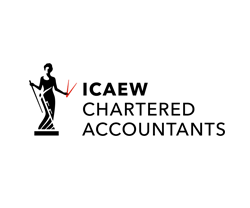October 31st, 2015
How Will HMRC Find Out About My Rental Income?
The title of this blog is one of the most common questions I field when dealing with landlords, in particular those who have never previously declared their rental income to HMRC.
How exactly would they know?
Well, they have a range of tools at their disposal, not least a very sophisticated computer system with connections to public databases such as the Land Registry and the Electoral Roll. HMRC regularly runs “tip off” campaigns, even paying rewards to the tipper when undeclared tax is successfully recovered, as well as “honesty” campaigns in which a tax amnesty is given to those coming forward voluntarily.
Estate & Letting Agents
An important part of HMRC’s arsenal in combating tax evasion is the power to obtain information from third parties, and this is the tactic employed in their most recent campaign targeting landlords. This month, HMRC have been writing to estate and letting agents instructing the agent to forward the names and addresses of all of the landlords on their books in receipt of rental income.
There are therefore going to be a lot of landlords currently not declaring their income who will be getting a letter from HMRC landing on their doormat in the very near future.
The Let Property Campaign (LPC)
One tactic that landlords can employ is to pre-empt the HMRC correspondence and make use of the Let Property Campaign, one of the “honesty” programs currently being run by HMRC. If the landlord comes forward of their own volition and makes disclosure of undeclared income under the LPC then HMRC will operate a much more lenient penalty regime. Penalties are typically 10% but can be as low as 0%.
If HMRC prompt the disclosure then penalties can range from 15% up to 100% depending on landlord conduct. So the LPC is a valuable tool for landlords to bring their tax affairs up to date.
The LPC won’t be an option forever so landlords are are advised to take advantage of HMRC’s leniency while they still can.
But My Rental Property Runs At A Loss…
It is true that loan interest and other costs such as repairs have historically meant that many rental businesses have operated at a loss or break even at best. Interest rates, however, have been at historic lows for many years now so quite a few landlords are now achieving annual profits in their rental business.
My previous blog touched on how tax relief will be restricted on mortgage interest. The restriction, gradually phased in to take full effect by the 2020-21 tax year, will have the main effect of mortgage interest being removed from the calculation of rental profit. This means that most landlords will move into a position of declarable rental profit with the mortgage interest relief needing to be claimed on a tax return.
The significance of this is that it will become increasingly difficult for landlords to gauge rental profits with a quick back-of-a-fag-packet calculation. The increasing complexity of property taxation will leave landlords who currently don’t declare their income – or losses – exposed to the techniques employed by HMRC as described above. This also extends to unrepresented landlords filling in their own tax returns.
Our advice? Seek the help of a qualified accountant!





